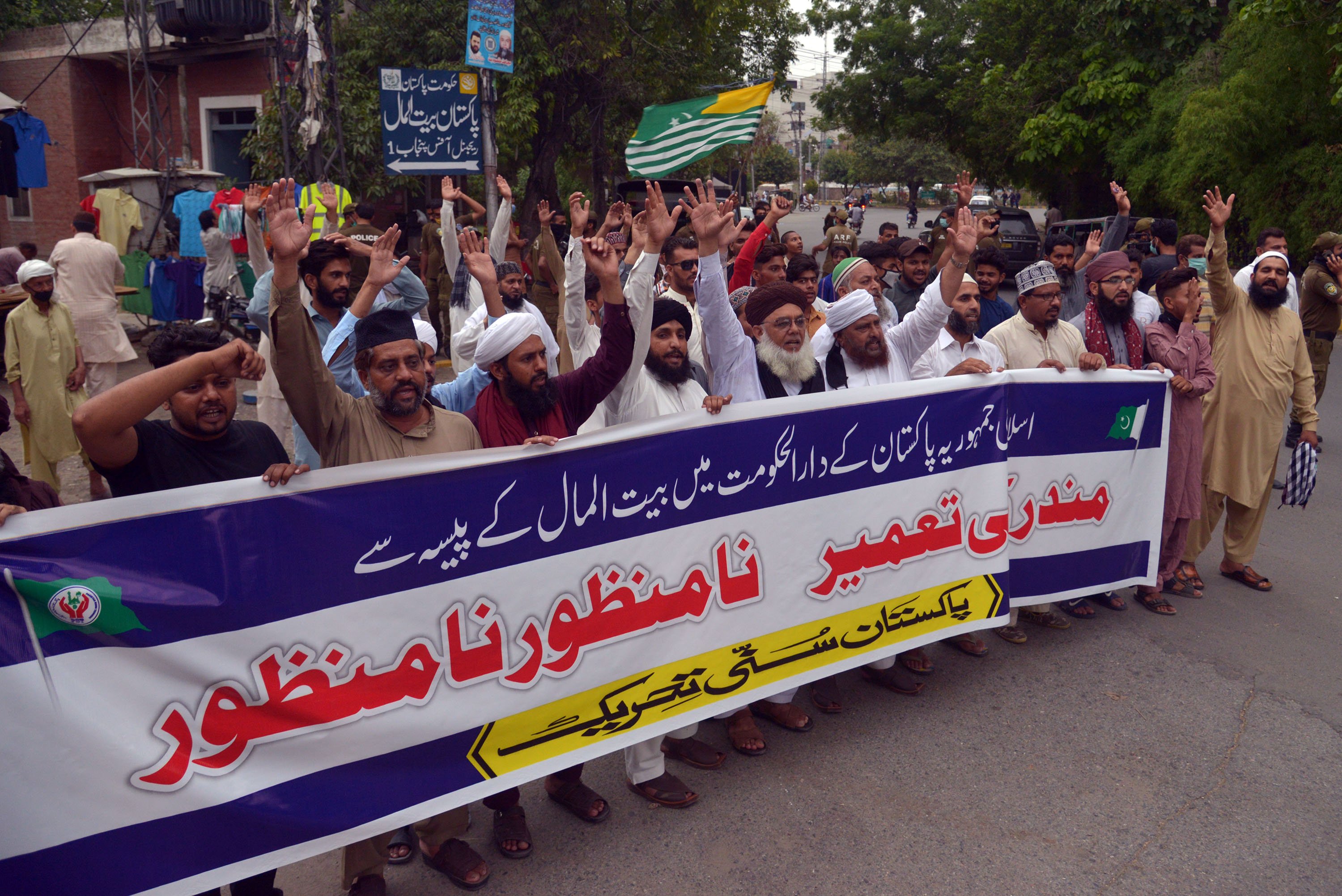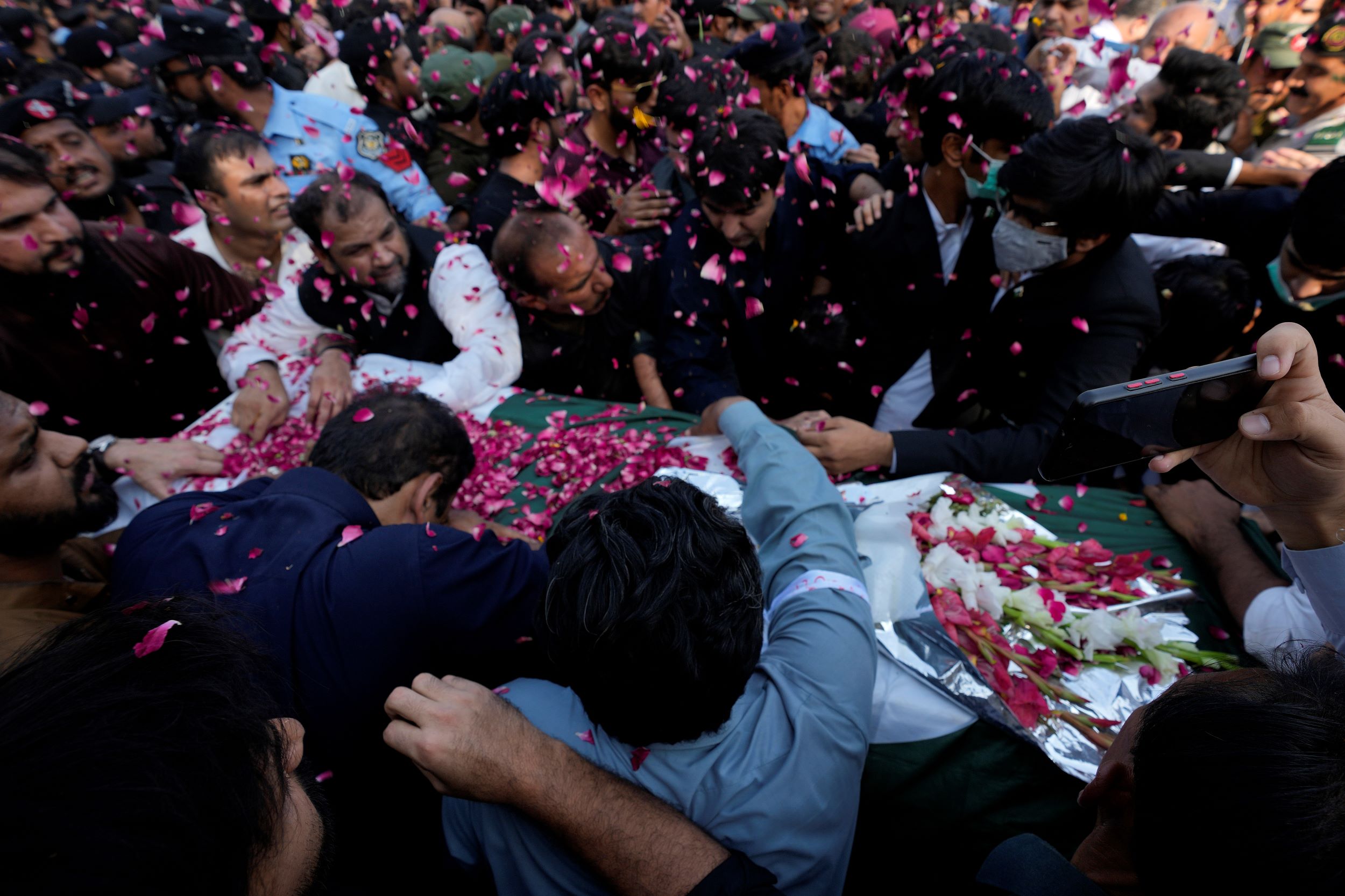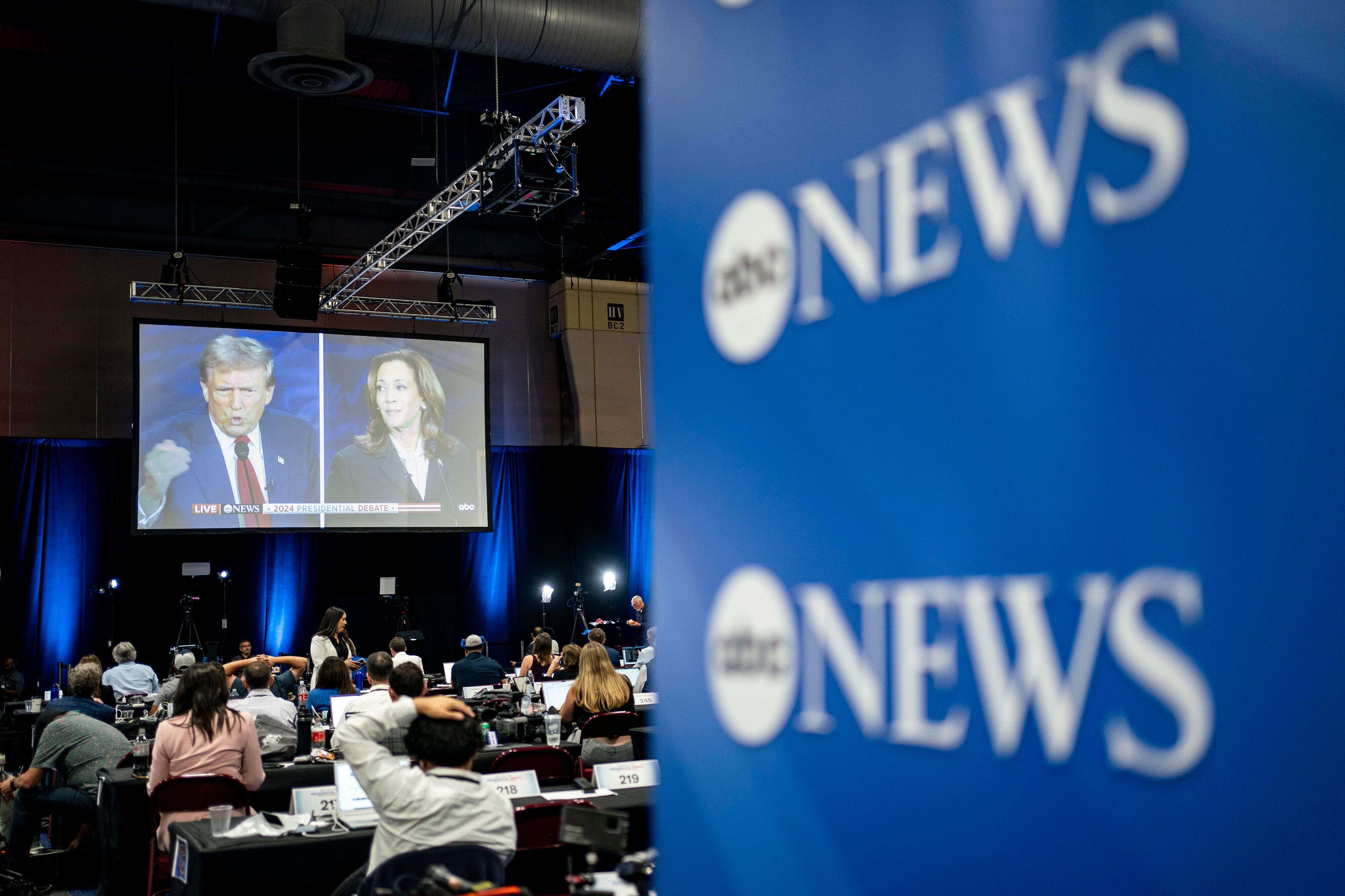Pakistan's media, despite its wide reach, largely neglects climate change in favour of political and economic issues, leaving the public under-informed about the causes and consequences of climate-related disasters. As a result, many Pakistanis remain unaware of the growing threats posed by climate change, which has devastating effects on the country's economy and population, as seen in the catastrophic floods of 2022.
In Pakistan, where climate change poses an existential threat, the media wields immense influence in shaping public understanding. Yet, it often sidelines one of the most critical issues facing the nation. Despite recurring natural disasters, the media’s focus remains skewed toward political debates and economic concerns, leaving the public ill-informed about the causes and consequences of climate change.
Pakistan frequently ranks among the countries most vulnerable to climate risks, with the 2021 Global Climate Risk Index placing it eighth on the list of nations most affected by extreme weather events from 2000 to 2019. Catastrophes like the 2022 floods, which submerged a third of the country, highlight the urgency of the issue. Despite this, experts argue that Pakistan’s media has not taken its role in raising climate awareness seriously.
Pakistan's mainstream media—both print and broadcast—is facing dwindling audiences as well as declining revenues,” said Siddiqi. “Its priority is to focus on stories that it believes will bring ratings and those stories that are sponsored by the government because the government is their biggest advertiser.
Are People Aware of Climate Change?
With such a massive impact on its growing population, overstretched resources, and faltering economy, natural disasters caused by climate change pose a serious risk to the country. Yet, many people remain unaware of its causes and consequences.
“Some people [in Pakistan] actually think climate change is a Western conspiracy,” Kamal Siddiqi, a former editor of The Express Tribune and ex-director at the Centre of Excellence for Journalism in Karachi, told Al Jazeera Journalism Review.
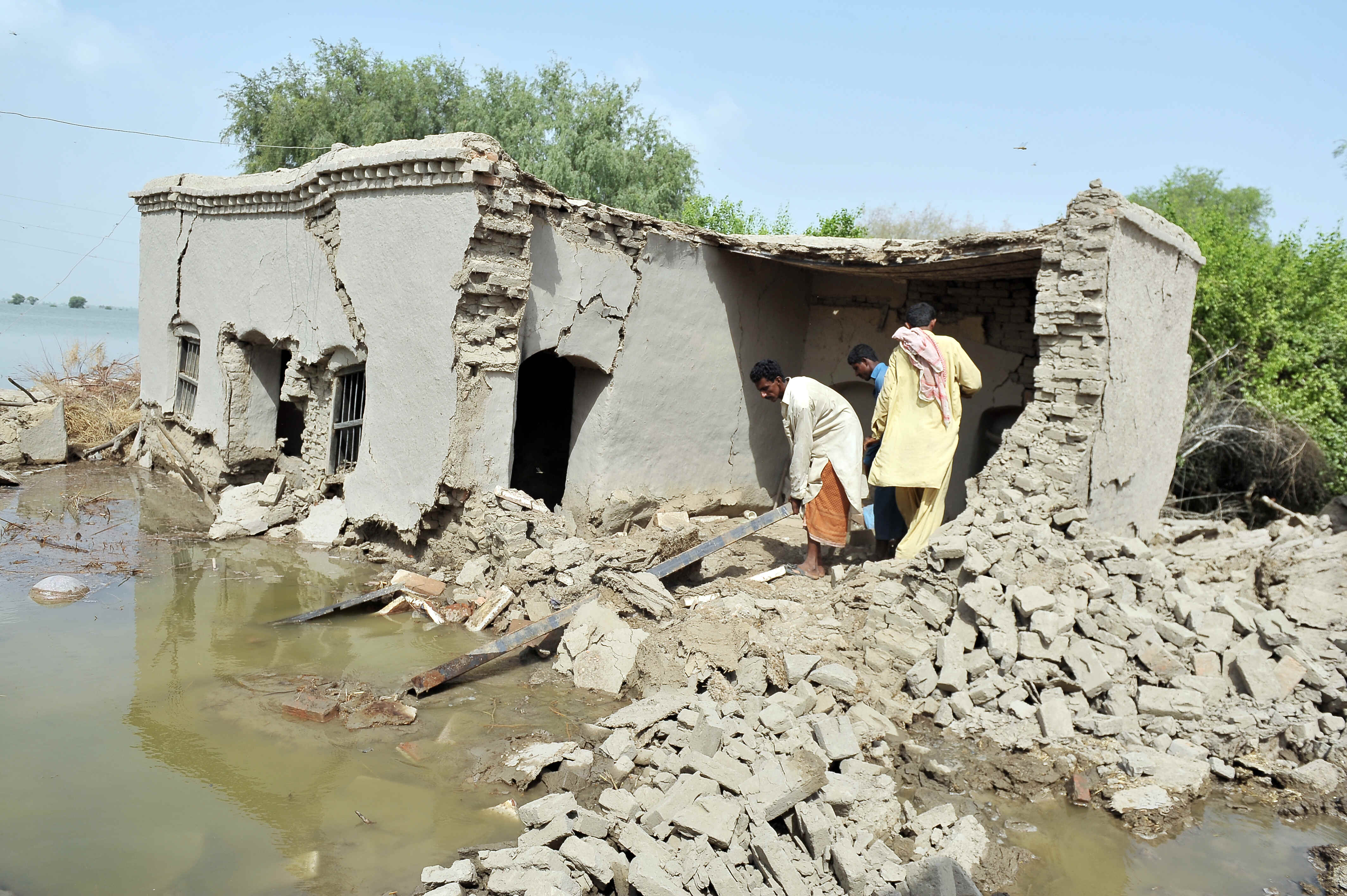
“I’ve talked to a number of people with a lot of experience who feel that this is not a priority issue for Pakistan. The media has to take this up. Issues like water, flooding, and smog are things that are affecting the daily lives of millions. “People should be told time and again why this is happening so that there is more awareness and debate on it.”
Such a lack of awareness is alarming, considering that Pakistan is one of the countries most affected by climate change, often featuring in the top 10 list of various indexes listing high-risk nations. In 2022 alone, extensive flooding submerged around a third of the country, affecting 33 million people and killing more than 1,700, causing $14.8 billion worth of damage as well as $15.2 billion of economic losses.
Is the Media Playing a Role?
Pakistan is a country with a strong and influential media, although not always free. But with its widespread reach—primarily broadcast but now social media—it works well when it comes to informing the audience and helping, often forcing, them form an opinion.
While under the watchful eyes of the authorities, the struggle for free media in Pakistan continues. However, movers and shakers and voices linked to various opinion formers as well as independent journalists travel far and wide across the country.
Daily talk-shows across many news and YouTube channels cover everything from politics and the state of the economy to the role of the army and the judiciary. There is also time to discuss cricket and any other seasonal developments, often the same experts and analysts donning multiple hats. Natural disasters are shooed in during news hours, limited to mostly reporting on the damage and casualties.
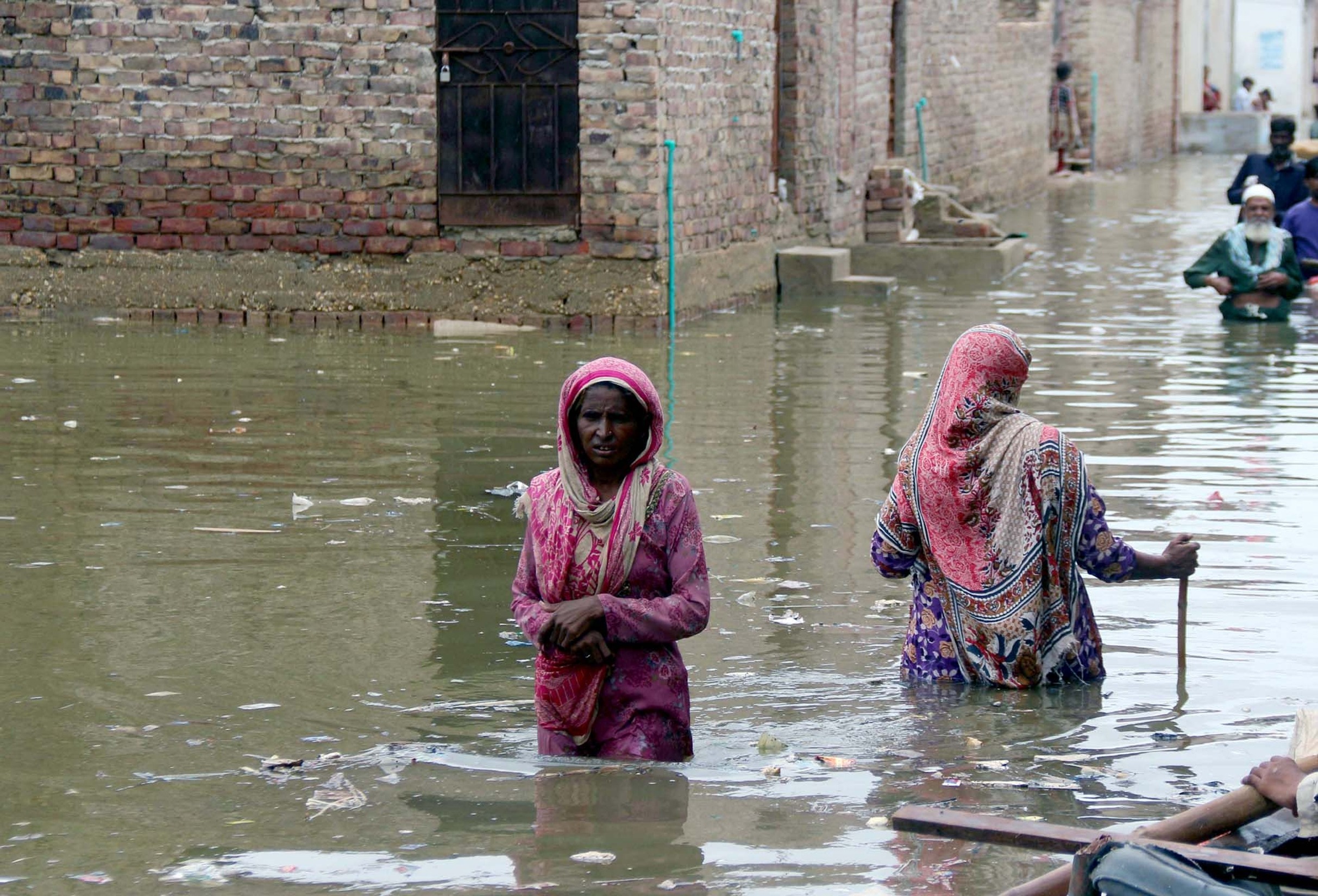
But is there enough done on important issues like climate change? And, given its reach and stature, is the media in Pakistan doing enough to educate its audiences and inform them of climate change?
“No, it is not,” said Syed Mohammad Ali, a development anthropologist who lectures at Johns Hopkins University. “Very few media outlets in the country have dedicated journalists working on a climate beat. As a result, journalists who are assigned a climate beat have multiple other responsibilities, and they lack the time and resources to focus on climate impacts and needed mitigation and resilience possibilities in adequate depth.
“As a result, even the catastrophic flooding experienced in the country in 2010 and in 2022 was not squarely attributed to climate change via reportage, which primarily focused on the evident destruction caused by the floods. They highlighted various inadequacies in disaster response without paying due attention to how and why broader climate-related threats had triggered the unprecedented flooding.”
Studies cited in a paper looking at the media’s role in tackling the climate change issue in Pakistan warned that “with every passing year, Pakistan will be facing a grave situation due to extreme events induced by climate change.” It added that “temperature in northern Pakistan has already been estimated to have increased by 1.9C in the past century, resulting in the decline of the glacial cover.”
As part of the same report on media’s role, Sanaullah Khan and Raja Muhammad Khan remarked: “Discourse analysis indicates that Pakistan’s media has been gripped by two themes during the few years: war on terrorism and political instability. Climate change, despite posing an existential threat to Pakistan, has not become an important theme in Pakistani media.”
The UNDP says that “Pakistan’s economy remains highly vulnerable to likely future threats posed by climate change, and multi-sectoral and holistic mitigation measures are required to be accorded high priority to mitigate these threats.”
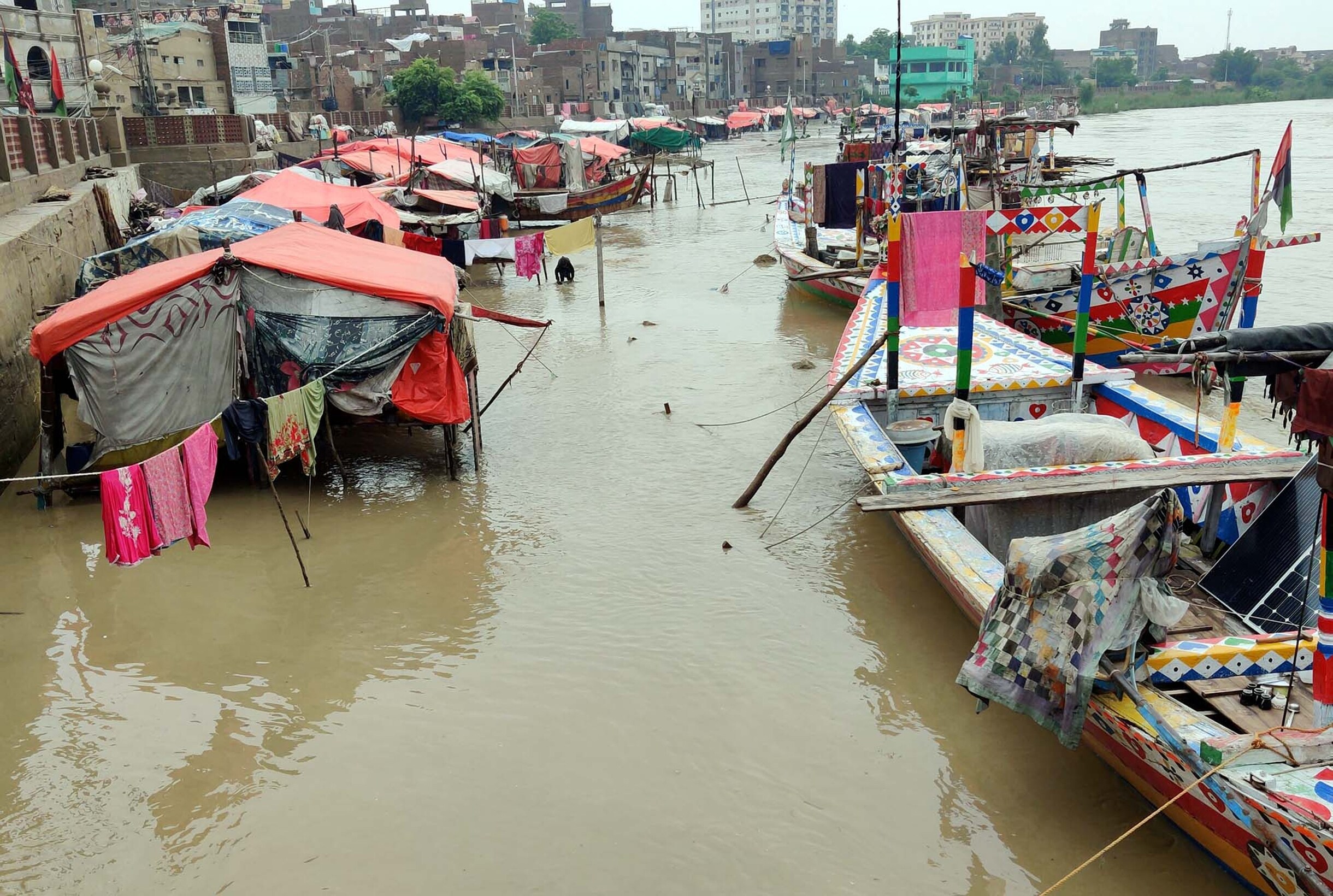
This year, there have been warnings issued by the Pakistani government of a food security crisis following disruption to farming by extreme weather events in some regions. Prolonged heatwaves, flooding, and drought caused damage that is affecting the economy as major industries in the country depend on crops such as rice, sugar, and cotton.
The effect? It has forced the government to import more in order to make up the shortfall.
Shaping Public Understanding and Action
In a recent post, Fergus Bell, a journalism and newsroom innovator, wrote that it was essential for journalists to “remember that how we cover climate change shapes public understanding and action.”
“The choices newsrooms make today, in terms of the framing, prioritisation, and frequency of climate stories, are as consequential as our long-standing commitment to fact-checking and integrity.”
Iqbal Hussain, a rice farmer in Pakistan, said he has never seen worse times as the recent monsoon rains destroyed his harvest. He says he is on the verge of bankruptcy as more than 800 hectares of rice paddies are all gone.
The majority of these farmers, just like most people across the country, are not aware of climate change. The reason? They have never heard of it being talked about.
Mumtaz Marri, a cotton farmer, shares similar woes, saying that it was “tough to survive in these conditions, battling both natural and man-made disasters," adding that “record-breaking heat damaged the plants, then heavy rains and canal breaches wiped out the cotton and sugarcane crops.”
The majority of these farmers, just like most people across the country, are not aware of climate change. The reason? They have never heard of it being talked about.
“Pakistan's mainstream media—both print and broadcast—is facing dwindling audiences as well as declining revenues,” said Siddiqi. “Its priority is to focus on stories that it believes will bring ratings and those stories that are sponsored by the government because the government is their biggest advertiser.”
The World Economic Forum reported that “climate change disproportionately affects the mental health of women and youth, whose needs and concerns are often sidelined during major climate disasters." This is in addition to financial woes, loss of life and property, and displacement, often permanent.
Yet, the main issues remain sidelined in the face of political talk-shows that often turn into cross-studio shouting matches with no credible solutions presented to the problems being discussed.
In a recent article, Ali wrote that “one rarely realises this alarming fact despite the profusion of varied media outlets across the country.”
“Journalists must not only play a greater role in creating awareness about climate change, but they can also act as watchdogs to pressure the incoming government to live up to their climate-related promises. The sooner the media realises how important it is to draw public attention to this issue, the more chances we have of politicians and decision-makers taking up this problem more seriously.”
By collaborating, sharing resources, and elevating this story, the media can help drive the public conversation forward, ensuring that climate change receives the sustained attention it needs.
Worst is Far From Over
According to the World Bank Group, climate and weather-related disasters in Pakistan between 1992 and 2021 resulted in total economic losses worth $29.3 billion, which is more than 11 percent of its GDP in 2020.
Bell, in his post, added that “by collaborating, sharing resources, and elevating this story, the media can help drive the public conversation forward, ensuring that climate change receives the sustained attention it needs.”
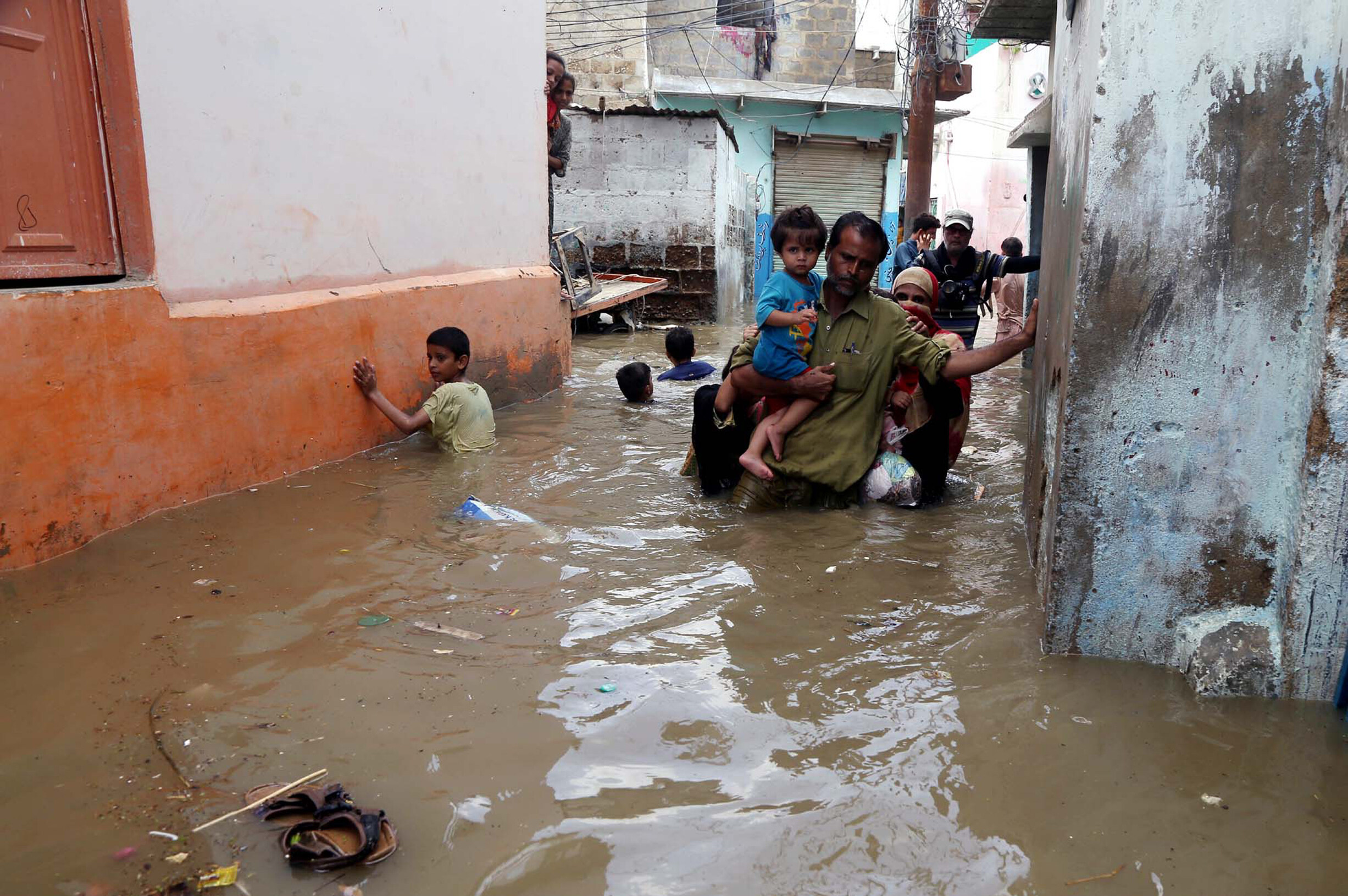
Earlier this month, Pakistan’s Dawn Media Group said it was launching Breathe Pakistan, which it called “an initiative to combat climate change that aims to mobilise citizens to incorporate environmental sustainability in their daily lives.”
But should initiatives have started much earlier?
With Pakistan facing significant natural disasters multiple times every year and the majority of the public still in the dark about climate change, the influential media needs to play a greater role in discussing this important topic and mobilising the government to initiate more awareness campaigns that work towards safeguarding the citizens’ future.


